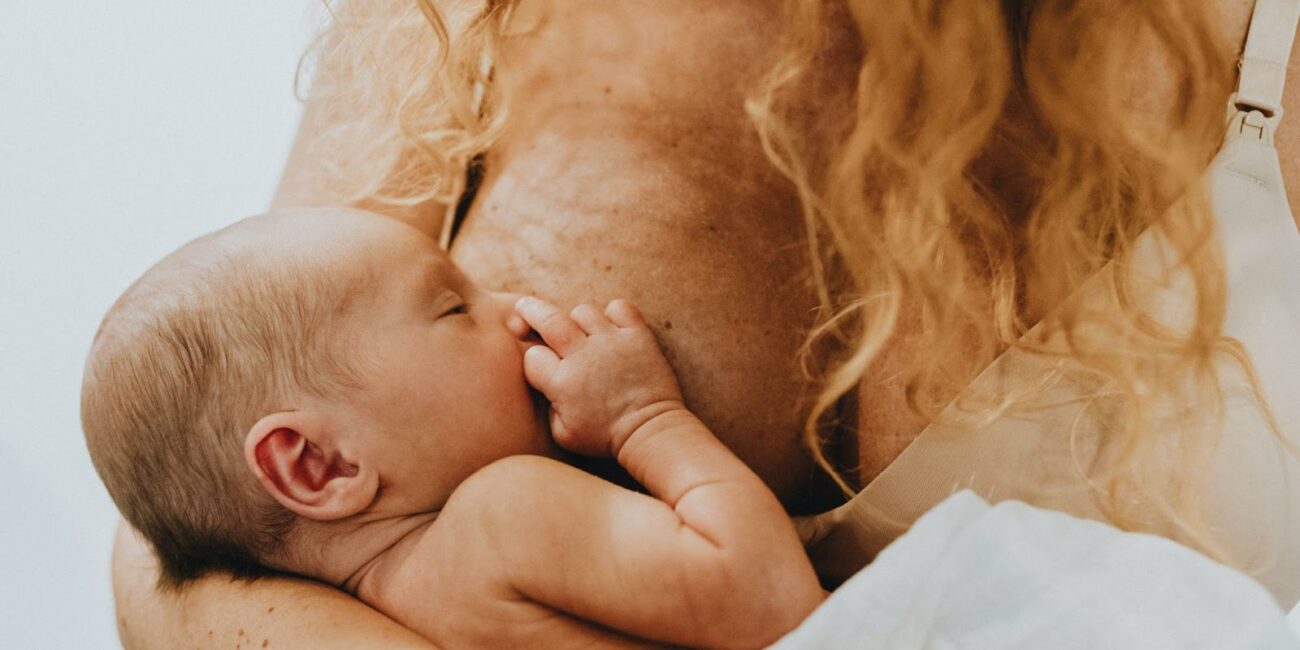Breastfeeding is an excellent way to provide nutrition to your baby, but it can come with challenges, especially in the form of gas. Gas in babies is quite common and can be caused by a variety of factors, including the mother’s diet. As a breastfeeding mother, you might be wondering what foods can make baby gassy while breastfeeding.
It’s important to know that every baby is different, and what might cause gas in one baby might not have the same effect on another. However, there are certain foods that are commonly known to cause gas in babies, and limiting or avoiding those foods might help reduce the gas.
Some of the common culprits that can make your baby gassy include dairy products, broccoli, cabbage, onions, and beans. These foods can cause gas in babies because they contain complex sugars that are difficult to digest, leading to gas and bloating. While it’s important to maintain a healthy diet while breastfeeding, it’s also essential to keep in mind that certain foods can be problematic for your baby.
Common Foods That Can Make Your Breastfed Baby Gassy
As a breastfeeding mother, it’s essential to pay attention to what you eat because some of these foods can make your baby gassy. Here are some common foods that can make your breastfed baby gassy:
- Cruciferous vegetables – Vegetables like cauliflower, broccoli, and cabbage are known to cause gas in both breastfeeding mothers and babies. Gas-causing properties of these vegetables come from complex sugars that aren’t easily digestible.
- Dairy products – Dairy is a common allergen, and it can cause gas, bloating, and discomfort. Milk, cheese, yogurt, and other dairy products contain lactose, a type of sugar that can be difficult for many people, babies included, to digest.
- Spicy and fried foods – Spices like garlic, ginger, and cinnamon, and fried foods can irritate your baby’s digestive system, causing gas. You should also avoid foods that are high in fat content as they take longer to digest, leading to bloating.
- Citrus fruits and juices – Citrus fruits and juices like oranges, lemons, and grapefruits are citrus fruits that can cause your baby’s stomach to become acidic, leading to gas.
- Beans and legumes – Most beans are notorious for causing gas and bloating (for adults and babies alike). Hence, it’s best to avoid them as much as possible.
It’s crucial to monitor your baby’s response to the foods you eat and avoid those that cause them discomfort. If you’re unsure about certain foods or have any concerns about your baby’s feeding patterns, consult your doctor or a lactation consultant.
Remember, breastfeeding means that whatever you eat, your baby eats too. Finally, be sure to eat a well-balanced, nutrient-dense diet, and stay hydrated to provide your baby with the best possible nutrition.
Tips for Minimizing Gassiness in Your Breastfed Baby
As a breastfeeding mother, you may be wondering what foods can make baby gassy while breastfeeding. While there are some foods that may affect your baby’s digestion, every baby is different, and it’s essential to identify the particular foods that affect your little one.
Here are some tips to help minimize gassiness in your breastfed baby:
- Keep a food diary: One way to find out which foods are causing your baby’s gassiness is by keeping a food diary. By noting what you eat and when your baby gets gassy, you may be able to identify the offending food.
- Avoid certain foods: Some foods are known to cause gas, such as dairy products, caffeine, spicy or acidic food, chocolate, and gas-producing vegetables such as beans, broccoli, and cabbage. Consider eliminating these foods from your diet and watch for any improvement in your baby’s gassiness.
- Try probiotics: Probiotics may help promote good gut bacteria in your baby’s digestive system, reducing the risk of gassiness. Probiotics can be found in supplements, yogurt, kefir, and some fermented foods.
- Take your time during feedings: Rushing through feedings may cause your baby to gulp air, increasing the risk of gassiness. Be sure to take your time and help your baby ingest milk at a steady pace.
- Burp your baby: Burping your baby during and after feeding can help release the excess air in your baby’s tummy.
It’s essential to remember that every baby is different, and what works for one may not work for another. Be patient and experiment with these tips to find what works best for your little one. If gassiness persists, seek guidance from your healthcare provider.
By following these tips, you may be able to help minimize gassiness in your breastfed baby and enjoy a more comfortable and happy breastfeeding experience.
Signs That Your Breastfed Baby May be Gassy
It’s normal for babies to pass gas and be slightly fussy, but excessive gas may cause discomfort to your little one. As a breastfeeding mother, it’s important to monitor your baby for signs of gas. Here are some signs to look out for:
1. Fussiness and Irritability
Babies with excessive gas may become fussy and irritable. They may have difficulty sleeping, feeding, and settling down. They may also have a troubled expression on their face.
2. Excessive Burping and Hiccups
If your baby is frequently burping and hiccuping, it may be a sign that they are taking in too much air while feeding. This could be due to an improper latch or position during feeding.
3. Bloated Tummy
If your baby’s tummy appears bloated and hard, it may be a sign of excess gas. You may also notice that your baby’s tummy is distended or feels tight to the touch.
4. Excessive Flatulence
As babies swallow air while feeding, it’s normal for them to pass gas. However, excessive flatulence may be a sign that your baby is gassy. You may notice that your baby is passing gas more frequently than usual, with a strong odor.
These signs may indicate that your baby is experiencing discomfort due to gas. It may be due to the foods you eat while breastfeeding. Certain foods, such as broccoli, beans, cabbage, and onions, may cause gas in your baby. However, it’s important to note that not all babies react to the same foods. It may take some trial and error to determine what foods make your baby gassy.
In addition to monitoring what you eat, you can try different techniques for burping your baby and improving their feeding position. You can also speak with your pediatrician or lactation consultant for further guidance on how to minimize gas in your breastfed baby.
Remember, while gas can cause discomfort to your baby, it’s a normal part of their development. With patience and care, you can help your little one feel more comfortable and content.
To sum it up, breastfeeding is a healthy and natural way to feed your newborn. However, certain types of food that you consume can make your baby gassy and irritable. While there isn’t a one-size-fits-all solution for preventing gas in babies, avoiding certain foods can help alleviate the problem.
The key takeaways to keep in mind include reducing your intake of dairy products, cruciferous vegetables, citrus fruits, and beans. Instead, consume lean proteins, leafy green vegetables, and drink plenty of water to maintain your milk supply. Additionally, try eliminating these foods from your diet one-by-one to isolate the culprit.
It’s also important to remember that not all babies react the same way to the same foods. If your baby continues to experience discomfort and fussiness, don’t hesitate to seek advice from your pediatrician. They may recommend other solutions such as changing breastfeeding positions, using a gentle formula, or trying gas-reducing medications.
With a little bit of patience and experimentation, you can find the right diet that works best for you and your baby. By following these guidelines, you’ll be able to enjoy a happy, healthy breastfeeding experience without worrying about gas and discomfort.

